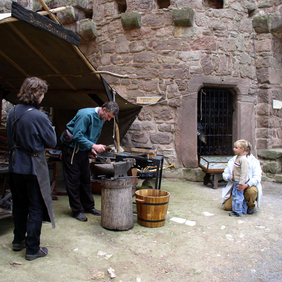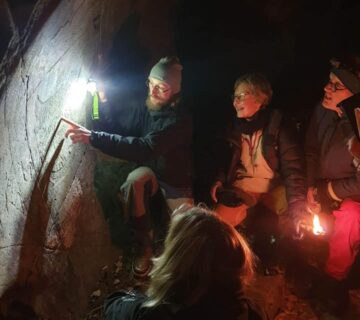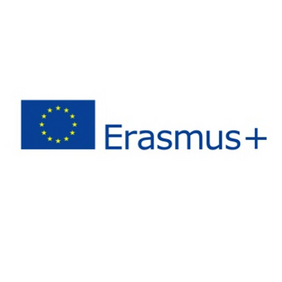
Medieval castle blacksmith interpretation (Image: Kreisel)
The ‘landscape’, with its natural and cultural contents and potential, is the basis for tourism. In order to judge these, but also to assess the opportunities and risks, a poly-functional landscape evaluation is required. The central task of tourism research is to advocate for sustainability in global thinking and local actions. In order to do justice to the various components relating to tourism, such as aspects of the natural and cultural landscape as well as the economic, sociocultural and political situation, an integrated approach is necessary. This means that, in addition to the core competences of one’s own area of expertise, methods and results of other scientific disciplines must be included. This interdisciplinary collaboration enables a holistic assessment of the many effects of tourism. Of course, the criteria for an applied landscape evaluation for recreation and tourism should be applicable, acceptable, and implementable for a sustainable development. Planning and communicating natural and cultural features of a landscape on the basis of a meaningful and balanced landscape assessment can significantly increase the recreational value of a region.
It is just a small step from landscape assessment to ‘landscape interpretation’ or heritage interpretation. This term was first defined by Freeman Tilden in his book, Interpreting our Heritage, published in 1957. He meant it to be an educational-didactic method of landscape understanding: Landscapes and their contents are considered ‘heritage’ that has been handed down by our ancestors and which we must therefore treat with great care. Landscapes have their own value, a value that visitors and even locals are often not conscious of. Landscape interpretation attempts to remedy this deficit. It defines, presents, and exhibits the essential aspects of a landscape in order to communicate the “natural and cultural heritage of a landscape”. To achieve this, tourists and residents should be shown relationships and correlations and be given background information rather than purely factual data. Visitors can make their own discoveries in order to understand what is “behind the obvious things”. Because the heart is addressed rather than the mind, and because enjoyment has a higher value than instruction, the awareness for the value of a landscape is sharpened.
Landscape interpretation identifies the key aspects of tourism potential that profiles a region on the basis of landscape characteristics, improves its image, and increases its attractiveness. Ultimately, positive regional economic effects are generated. Thus, landscape interpretation is a significant planning element. Its results are the basis for creating tourist products that provide new experiences, and are a catalyst for more visitors. Landscape interpretation is an integral part of how tourism research approaches a landscape and thus increases the quality of tourism.
Werner Kreisel is emeritus professor of Human Geography in the Department of Geography at Georg- August-Universität Göttingen, Germany. His research focus is tourism research, heritage interpretation and sustainable tourism. He can be contacted at: wkreise@gwdg.de.
Tobias Reeh is a senior lecturer of Human Geography in the Department of Geography at Georg-August-Universität Göttingen, Germany. His research focus is tourism research, heritage interpretation, sustainable tourism. He can be contacted at: treeh@gwdg.de.
The topic of this article can be explored in more detail in the following publication:
Werner Kreisel, Tobias Reeh (Eds./Hg.) (2019)
Tourism Research and Landscape Interpretation
Tourismusforschung und Landschaftsinterpretation
ZELTForum – Göttinger Schriften zu Landschaftsinterpretation und Tourismus – Vol. 10,
Universitätsverlag Göttingen.
ISBN: 978-3-86395-429-1
It can be ordered from: univerlag@uni-goettingen.de
Free download available at: https://univerlag.uni-goettingen.de
To cite this article:
Kreisel, Werner and Reeh,Tobias (2020) ‘Tourism research and landscape interpretation‘. In Interpret Europe Newsletter 1-2020, 20-21.
Available online:
www.interpret-europe.net/fileadmin/Documents/publications/Newsletters/ie-newsletter_2020-1_spring.pdf




